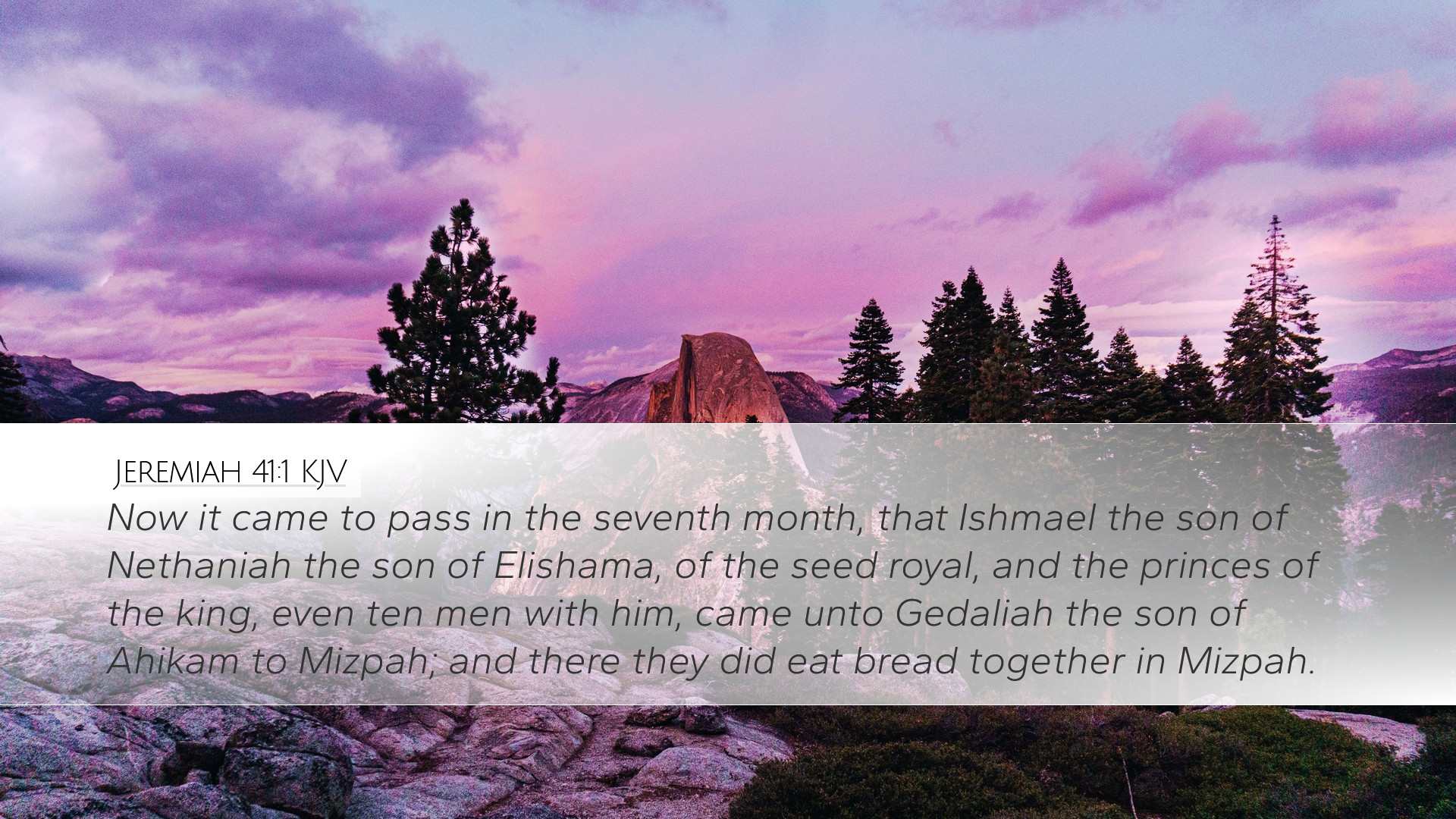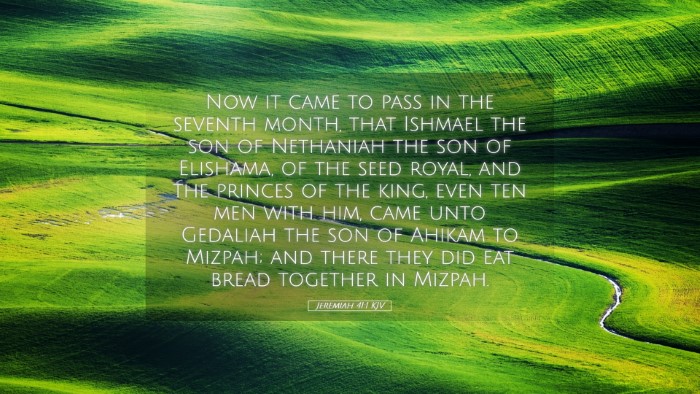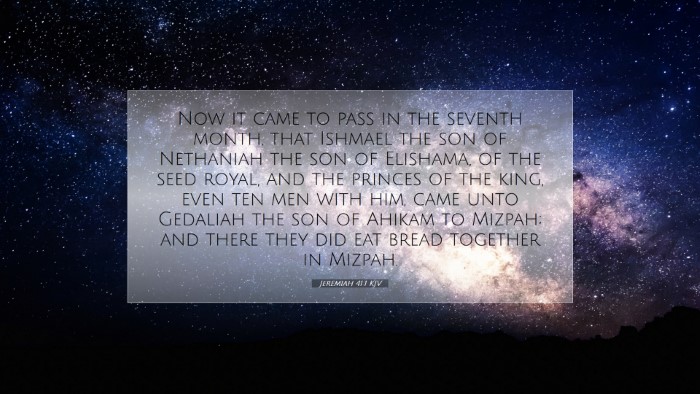Commentary on Jeremiah 41:1
Jeremiah 41:1 serves as a critical moment within the prophetic narrative of the Old Testament, reflecting on the tumultuous period following the fall of Jerusalem. This verse reads: “Now it came to pass in the seventh month that Ishmael the son of Nethaniah, the son of Elishama, of the seed royal, and the princes of the king, and ten men with him, came unto Gedaliah the son of Ahikam to Mizpah; and there they did eat bread together in Mizpah.”
Contextual Background
This event occurs during a significant shift in Israel's history, after the Babylonian conquest. Gedaliah, installed by the Babylonians as governor, represents a fragile leadership that is contentious and ultimately tragic. Understanding the backdrop of this narrative provides essential insights for theological reflection.
The Role of Gedaliah
Matthew Henry notes that Gedaliah’s appointment was a glimmer of hope for the remnant of Israel. His role was not only administrative but also symbolic of God's continued care for His people. Gedaliah’s leadership was initially well-received, as he sought to stabilize a fractured society.
Ishmael’s Ambition
Albert Barnes elaborates on Ishmael’s background. As a royal descendant, Ishmael’s motives were driven by ambition and familial loyalty. His connection to the royal house suggests an underlying rivalry against Gedaliah’s authority. This political tension showcases the fragility of leadership among the Israelites in this post-exilic context.
Significance of Eating Together
In the cultural context, sharing a meal, as described in the verse, represents a formal agreement or a treaty. Adam Clarke posits that this act was deceptive; while appearing to extend friendship, Ishmael's intention was far from amicable. This illustrates profound theological truths about trust, betrayal, and divine sovereignty even amidst human treachery.
Theological Implications
Jeremiah 41:1 is not just a historical account; it is rich with theological implications. It calls scholars and theologians to reflect on God's providence amidst chaos and man’s propensity for betrayal.
Providence in Adversity
- Representation of God’s Sovereignty: This verse underscores God's sovereignty even in dire circumstances. Despite the political upheaval, God’s purpose unfolds through the very actions of those who oppose Him.
- Betrayal in Leadership: The actions of Ishmael reflect a common thread throughout Scripture where leaders betray those in authority. This serves as a warning to modern leaders in faith communities to guard against ambition that leads to disunity.
Lessons for Modern Believers
Furthermore, the events surrounding this verse provide profound lessons for contemporary believers:
- The Need for Discernment: As in the times of Jeremiah, believers today must navigate a world filled with betrayal and false alliances, requiring discernment and wisdom in choosing companions and leaders.
- Faithfulness in Crisis: Gedaliah's commitment to lead faithfully amidst adversity challenges modern believers to remain steadfast in their religious vocations, even when circumstances appear bleak.
Conclusion
In summary, Jeremiah 41:1 encapsulates a moment filled with treachery and divine oversight. Through the contributions of Matthew Henry, Albert Barnes, and Adam Clarke, the intricate dynamics of leadership, betrayal, and God's ongoing purpose emerge with clarity. This rich tapestry of historical narrative invites pastors, students, and scholars to engage deeply with the text, discerning its relevance in the continued story of God's people.


